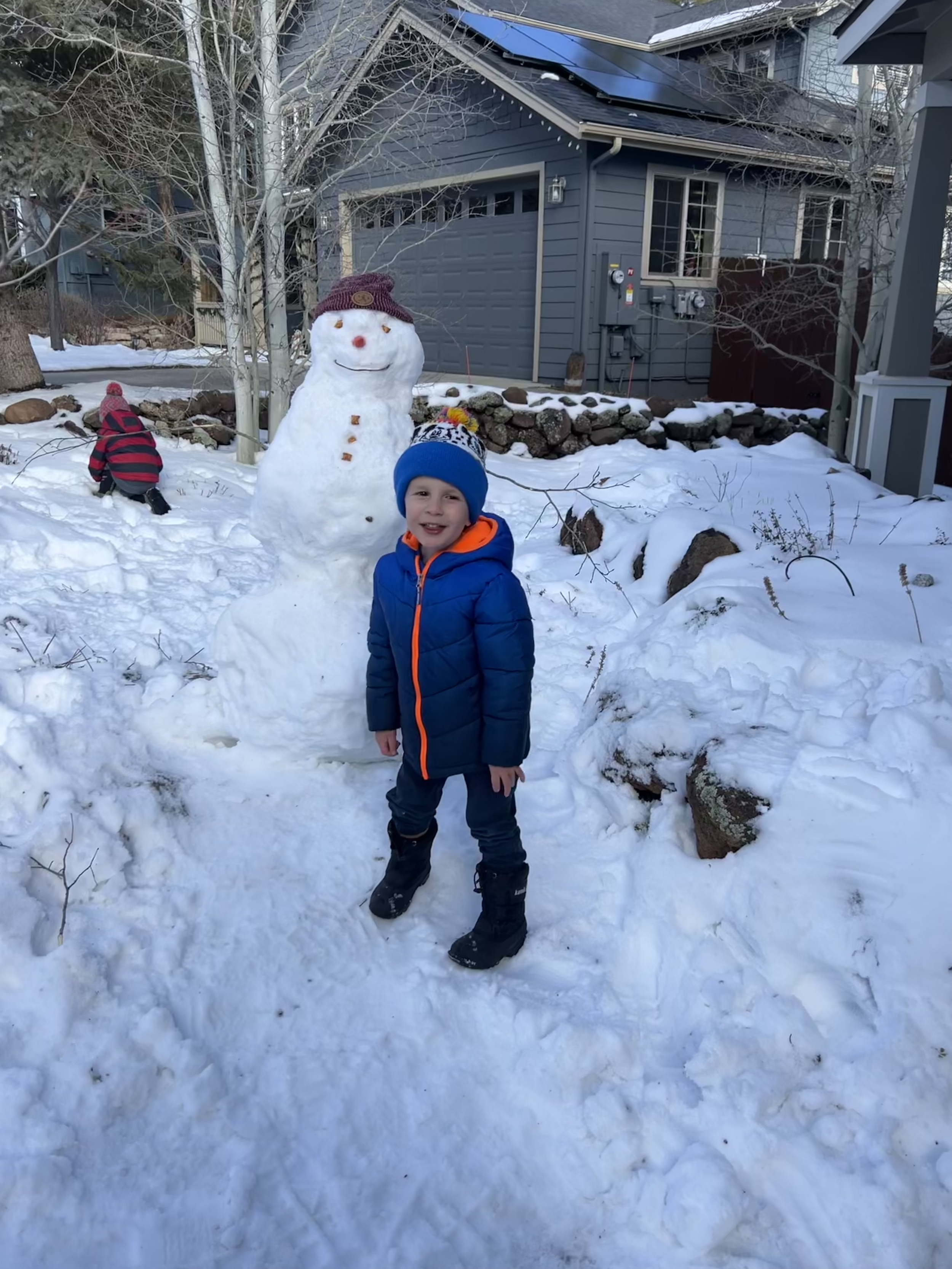Ponies
I hope everyone had a nice Christmas last weekend.
Ours was great; we spent the holiday in Flagstaff and the kids played in snow for the first time… we even managed to make a snowman.
Along with snowman-making and drinking hot cocoa, the holiday season inspires people to exchange gifts.
I’ve made up a little holiday story for you about gift giving, the power of markets, and why we can’t let greed or envy drive our decision-making.
Here goes:
The Tale of Five Ponies
Once upon a time there were 5 families: The Harding Family, The Johnson Family, The Smith Family, The Hernandez Family, and Your Family.
These families lived in the same neighborhood, had the same income, and the same lifestyle. Also, they each have 5 five little girls like this one:
For Christmas, each of these five little angels asked their parents for a pony. How could they resist?
Unfortunately, ponies are expensive. In fact, each of these families would need to save for about 5 years to be able to buy a pony.
FIVE YEARS!? So, yea, Christmas is going to be a little anticlimactic while they wait those 5 years.
… But perhaps there’s another way.
We know that each family has 20% of the cost of a pony right now and will have another 20% next year, etc. so what if they pooled their funds together? It looks like this:
Year 1
Harding Family = 20% of a pony
Johnson Family = 20%
Smith Family = 20%
Hernandez Family = 20%
Your Family = 20%
… In one year the group can pool funds and buy a pony and then hold a lottery to see which family gets it.
In year 2 they do the same thing. Then again in years 3, 4, and 5.
Instead of all 5 families having to wait 5 years for a pony, only one unlucky family has to wait. But even that unlucky family is not worse off then they would have been initially.
This kind of collectivism arguably improves the lives of each family without punishing anyone. However, there’s a social contract: each family will continue to pitch in after they’ve received their pony — that’s the only way this works. There will be a temptation to be greedy and spend their savings on something else if they already have the thing they wanted — they have to resist that urge to pursue more.
In addition to managing greed, those who haven’t received ponies have to manage envy of those who have theirs. After all, they’re no worse off because their neighbors have a pony, but comparing against others may making waiting tough to handle.
As with many financial matters, greed and envy can be the downfall of progress.
More than just ponies.
We know we need to keep our emotions in check, because maybe the thing we’re working together for isn’t a pony.
…Maybe we’re trying to fund company’s cancer research, because we’ve been intimately impacted by that.
…Perhaps we’re buying bonds to fund our local schools.
…Or maybe we’re trying to help people who need Medicare or Social Security afford that today and we know our time will come down the road.
The world is infinitely more complex than a single neighborhood of homogenous families with identical goals; which is why we have markets.
Markets help connect short term investors with long term ones.
…They help connect savers with consumers.
…They help connect the impatient with the disciplined.
…And they help bring people together for a common cause.
One of our main jobs is to help investors figure out where they fit into our complex economic system in a way which best suits their needs and wants; when we come together we can do amazing things if we can just control greed and envy.
That’s all for now.
Happy Holidays,
Adam Harding, CFP | Advisor | Smartvestor Pro | Snowman Architect
www.hardingwealth.com


